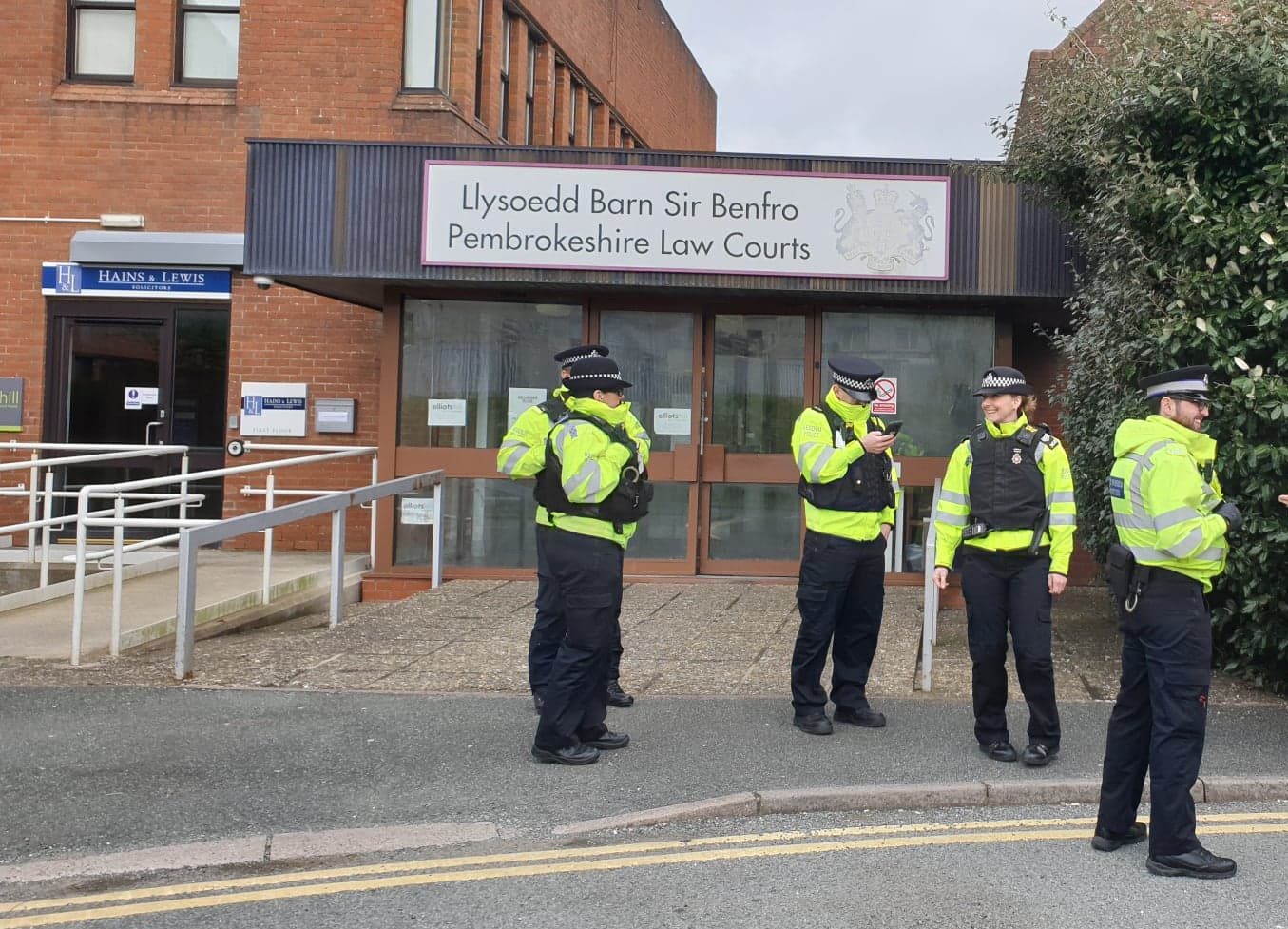featured
Government acts of porn access

THE UK will become the first country in the world to bring in age-verification for online pornography when the measures come into force on July 15, 2019.
It means that commercial providers of online pornography will be required by law to carry out robust age-verification checks on users, to ensure that they are 18 or over. The move is backed by 88% of UK parents with children aged 7-17, who agree there should be robust age-verification controls in place to stop children seeing pornography online.
Websites that fail to implement age-verification technology face having payment services withdrawn or being blocked for UK users.
The British Board of Film Classification (BBFC) will be responsible for ensuring compliance with the new laws. They have confirmed that they will begin enforcement on 15 July, following an implementation period to allow websites time to comply with the new standards.
UK Minister for Digital Margot James said: “Adult content is currently far too easy for children to access online. The introduction of mandatory age-verification is a world-first, and we’ve taken the time to balance privacy concerns with the need to protect children from inappropriate content. We want the UK to be the safest place in the world to be online, and these new laws will help us achieve this.”
Government has listened carefully to privacy concerns and is clear that age-verification arrangements should only be concerned with verifying age, not identity. In addition to the requirement for all age-verification providers to comply with General Data Protection Regulation (GDPR) standards, the BBFC have created a voluntary certification scheme, the Age-verification Certificate (AVC), which will assess the data security standards of AV providers. The AVC has been developed in cooperation with industry, with input from the government.
Certified age-verification solutions which offer these robust data protection conditions will be certified following an independent assessment and will carry the BBFC’s new green ‘AV’ symbol. Details will also be published on the BBFC’s age-verification website, ageverificationregulator.comso consumers can make an informed choice between age-verification providers.
BBFC Chief Executive David Austin said: “The introduction of age-verification to restrict access to commercial pornographic websites to adults is a groundbreaking child protection measure. Age-verification will help prevent children from accessing pornographic content online and means the UK is leading the way in internet safety.
“On entry into force, consumers will be able to identify that an age-verification provider has met rigorous security and data checks if they carry the BBFC’s new green ‘AV’ symbol.”
The change in the law is part of the Government’s commitment to making the UK the safest place in the world to be online, especially for children. It follows last week’s publication of the Online Harms White Paper which set out clear responsibilities for tech companies to keep UK citizens safe online, how these responsibilities should be met and what would happen if they are not.
CEO of Internet Matters Carolyn Bunting said: “We are delighted to see the government tackling the issue of online pornography. Children seeing online content for which they’re not emotionally ready can be very damaging, especially if they don’t speak out about it.
“While our research shows that parents overwhelmingly support age-verification and are confident it will make a difference, we must recognise that digital solutions aren’t the only answer and parents can’t become complacent about their child’s digital world.
“There is no substitute to having regular and honest conversations with your child about what they’re getting up to online, establishing an open dialogue about their digital life from a young age.”
Will Gardner, CEO of Childnet said: “We hope that the introduction of this age-verification will help in protecting children, making it harder for young people to accidentally come across online pornography, as well as bringing in the same protections that we use offline to protect children from age-restricted goods or services.
“Talking to children is vital and education has a major part to play here, and we need to ensure all young people are given a platform to discuss the pressures they face online and have the skills to spot and understand the gap between perception and reality. We are releasing a new extended PSHE toolkit later this month to address the issue of online pornography along with related topics of body image and healthy relationships.
“We know that conversations with young people, parents and carers and teachers are paramount to giving children the information, support and skills that they need.”
featured
Wanted: Steven Kimpriktzis in connection with drug trafficking operation

DYFED-POWYS POLICE have said they are urgently seeking information leading to the arrest of Steven Kostas Kimpriktzis, aged between 45 and 50, in relation to a significant drug trafficking operation.
Kimpriktzis, an alleged central figure in an Organised Crime Group (OCG), is accused of conspiring to supply Class A controlled substances across Liverpool, Dorset, and Pembrokeshire between May 2021 and March 2022.
The police allege Kimpriktzis’s direct involvement in the orchestration of drug movements that have significantly impacted the regions involved. Standing at approximately 175 to 180 cm (5′ 10″) with a medium build and described as White European in ethnicity, Kimpriktzis has known connections in both Liverpool and Reading and has been spotted in Greece recently.
The Dyfed-Powys Police force is leading the charge in this cross-regional investigation, emphasising the severity of the charges against Kimpriktzis. As part of a larger OCG, his activities have drawn considerable concern, prompting a nationwide alert for his apprehension.
Authorities are appealing to the public for any information regarding Kimpriktzis’s whereabouts or activities. Confidential tips can be relayed anonymously by contacting 0800 555 111. The police stress the importance of community assistance in curtailing the operations of such organised crime groups, which pose significant risks to public safety and wellbeing.
In the ongoing battle against drug trafficking within the UK, the capture of individuals such as Steven Kostas Kimpriktzis represents a critical step in dismantling networks that fuel illegal drug distribution and associated criminal activities. The Dyfed-Powys Police remain dedicated to this cause, urging anyone with knowledge that could lead to Kimpriktzis’s arrest to come forward.
featured
‘SPARC’ Powering progress for females – launches on International Women’s Day

ON INTERNATIONAL WOMEN’S DAY, Pembrokeshire College proudly hosted the highly anticipated launch event of the Sustainable Power, Renewables, and Construction (SPARC) Alliance. This occasion celebrated women and effective collaboration between industry, notably the Alliance members: Blue Gem Wind, Floventis Energy, Ledwood Engineering, Port of Milford Haven and RWE Renewables, local secondary schools, and Pembrokeshire College.
The collective aim of SPARC is to promote gender diversity in these underrepresented industries. Parliamentary Under-Secretary of State for Wales, Fay Jones, delivered an empowering address, emphasising the importance of initiatives like SPARC in promoting gender diversity. Wales Office Minister Fay Jones said: “I was delighted to come to Pembrokeshire College on International Women’s Day to celebrate the excellent work that’s been achieved by all the partners in promoting opportunities for young women. Encouraging women into professions like engineering and construction is vital to ensure they have the chance of achieving fantastic well-paid careers in their local area.
It’s great to see the UK Government’s investment in the Swansea Bay City Deal being used for such a brilliant scheme.” The event that was opened by Dr Barry Walters, Principal of Pembrokeshire College, reminding the audience of the current gender gap in the featured sectors and the role we all should play encouraging females into non-traditional roles.
Keynote speaker and trailblazer Jessica Leigh Jones MBE, captivated the audience with her insights into the pivotal role of women in driving innovation and progress in the green economy. A highlight of the event was the SPARC Alliance panel discussion Chaired by the former Minister for the Environment, Sustainability and Housing, Jane Davidson. The highlight was the female ‘Careers’ panel, five female professionals took time out of their busy schedules to inspire the next generation of engineers by answering questions from learners.
The SPARC Alliance investment and the additional funding from the Swansea City Deal, will support school teachers to deliver SPARC engagement activities. Awareness raising, building confidence and interacting with industry will add to unlocking female potential in these underrepresented industries. “Pembrokeshire College and Pembrokeshire County Council extend their gratitude to all partners whose unwavering collaboration and support have brought this transformative initiative to fruition, breaking barriers and building a future filled with opportunities for future generations.” SPARC Lead, Hayley Williams.
featured
Pembrokeshire man accused of ‘sexual activity’ with stepdaughter

A PEMBROKESHIRE man has appeared before magistrates charged with committing sexual acts against his step-daughter.
The man, who cannot be named for legal reasons, is accused of engaging in ‘adult sexual activity’ with the girl between January 1, and June 4, 2021.
The acts included sexually touching the child, who was 16 or over at the time of the alleged offences, with his finger.
He faces a total of four charges of engaging in sexual activity with his family member.
No pleas were entered by the defendant when he appeared before Haverfordwest magistrates on Tuesday morning.
Following a request by the Crown Prosecution Service, magistrates declined jurisdiction in the matter, which will now be heard at Swansea Crown Court. Proceedings will commence on March 28.
The defendant was released on unconditional bail.
-

 News2 days ago
News2 days agoPolice and air ambulances at ‘serious incident’ at West Wales school
-

 News6 days ago
News6 days ago20mph U-turn: Some roads will return to 30mph following public outcry
-

 Community6 days ago
Community6 days agoMiracle pup finds her forever home after heart-wrenching journey
-

 Crime2 days ago
Crime2 days agoPembrokeshire pensioner accused of 17 sexual offences against children
-

 Crime1 day ago
Crime1 day agoAll three school stabbing victims discharged from hospital, police confirm
-

 Community3 days ago
Community3 days agoCounty Hall to offer space for community banking
-

 Crime4 days ago
Crime4 days agoBrian Davis: Wanted on suspicion of commercial burglary
-

 Education5 days ago
Education5 days agoTarget of 1m Welsh speakers by 2050 is “almost impossible”






















